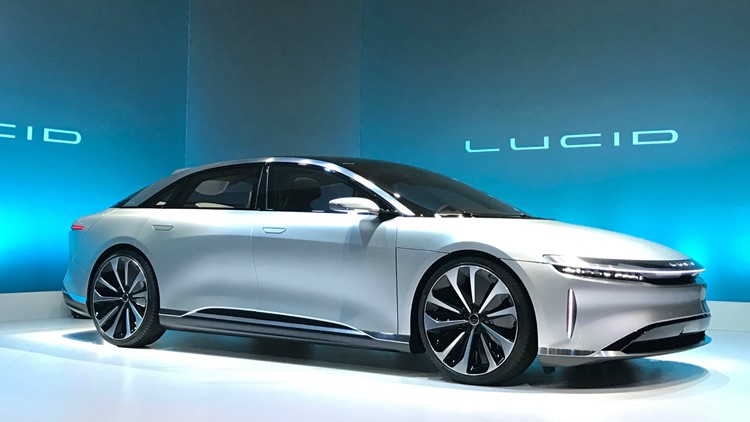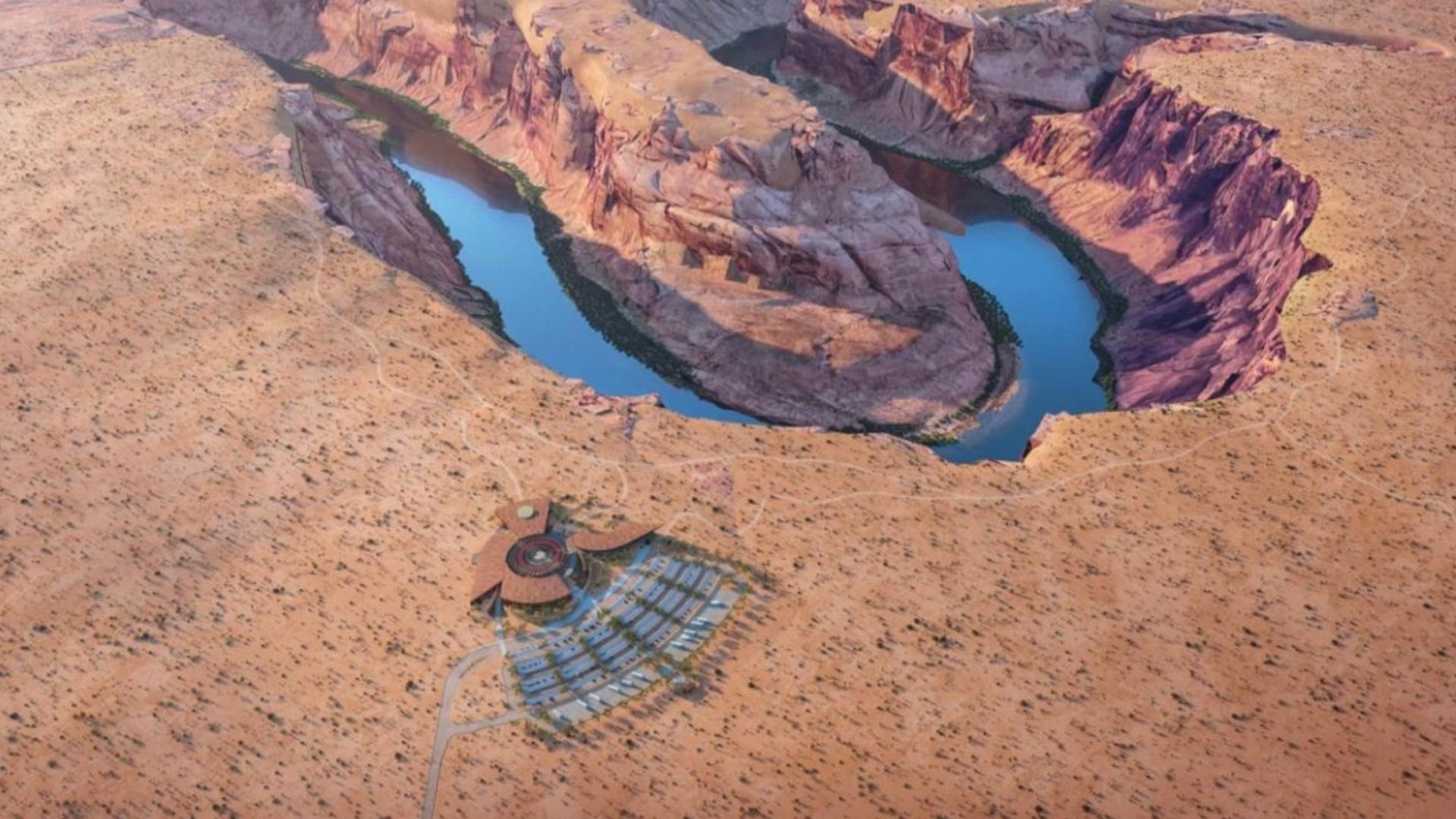FREMONT, Calif. — Inside a nondescript warehouse, Lucid Motors pulled the wraps off what could either be a new force in luxury high-tech cars or another asterisk in the competitive world of automotive sales.
Dubbed the Lucid Air, the all-electric, technology-packed sedan will top out at $160,000 and in that incarnation aims to be "a private jet on four wheels," Lucid chief technology officer Peter Rawlinson told assembled reporters.
Deposits for Lucid Air are being taken now, $2,500 for an edition that will be priced starting at around $100,000 and $25,500 for the $160,000 Launch Edition whose independent dual rear seats almost fully recline in the manner of first-class airplane seating, a possible boon to the chauffer-driven Asian market.
Eventually, the company expects to offer a version at $65,000.
Other bragging rights of the Lucid Air include twin electric motors front and rear that combine to produce a staggering 1,000 horsepower; a wide array of Lidar, radar and cameras to enable autonomous driving; and a range of 300 miles that can be increased to 400 as an option.
Executives with Lucid Motors, which numbers roughly 300 employees based in the Silicon Valley town of Menlo Park, said that the company would be rolling out company stores to sell its vehicles, an echo of Tesla's showrooms. Those stores should begin opening in late 2017. In Fremont, the town outside San Jose where Tesla builds its electric cars, Lucid is constructing alpha and beta prototypes.
The effort is reminiscent of another high-flier, the Fisker Karma, a stealth-like hybrid-powered sedan that went from red hot to stone cold in just about a year.

Lucid has an initial production target of 10,000 vehicles, eventually ramping up to 60,000 "in three or four years," says head of marketing Zak Edson.
The Lucid Air's gee-whiz technology and looks aside, the biggest question facing a new automaker is whether it can make enough money while acquiring scale.
Tesla has famously struggled to make a profit despite the popularity of its Model S and X sedans, which often price out at $100,000. Tesla builds around 50,000 cars a year, and hopes to achieve profitability by boosting production tenfold with its entry level Model 3.
Edson said that the company is optimistic about achieving profitability early on.
"We have a strong cost model for our car, which includes our battery supplier Samsung as well as some of our parts coming from (the Mexican state of) Sonora," says Edson. "In the end though, we're not going out there to compete with Tesla, but rather to compete with all the top luxury automakers, like Audi and Mercedes-Benz. We think there's room for all of us."
In fact, Lucid execs used three Mercedes-Benz models to help define the Lucid Air, noting that it would feature the exterior size of a Mercedes E-Class, the interior space of a large S-Class, and the emotional appeal of the sleek CLS.
Lucid recently announced it would built its vehicles at a $700 million facility in Casa Grande, Ariz.
Founded in 2007 under the name Atieva, Lucid has raised $131 million with participation from China Environmental fund, Japanese investment firm Jafco Life Science and Silicon Valley VC Venrock, according to Crunchbase.
In contrast, Tesla is a $32 billion public company whose CEO, Elon Musk, hopes to transform into a purveyor of solar panels, electricity storage units and electric vehicles.

Lucid CTO Rawlinson served as chief engineer for the Tesla Model S, while vice president of design Derek Jenkins has spent time at Audi, Volkswagen and Mazda.
"Lucid will be a new kind of luxury experience," said Jenkins. "A growing community of tech-savvy consumers is hungry for a car like this."
0 to 60 in 2.5 seconds
Lucid provided reporters with brief test drives in Air prototypes, whose interiors were packed with gadgets and wires. But the experience of rocketing to 60 miles per hour in 2.5 seconds — about the same as a $1.4 million Ferrari LaFerrari hypercar — was neck-snappingly impressive. Similarly, after the test driver engaged an autopilot system, the Lucid Air calmly drove itself back to the garage.
The non-driving Air prototype stood out thanks to a shark-like nose that was noticeably missing traditional headlights. Instead, the company has designed proprietary beams, 10 per side, that pack the equivalent of 20,000 micro-adjustable lenses that can follow the car's path with unprecedented precision.
Inside, the car features three rectangular dashboard screens that display an array of driving-related data, as well as a disappearing tablet-like screen between the two front passengers.

Two options are available for rear seating, a traditional bench set-up or the aforementioned jet-style buckets that fold almost back into the rear trunk. Overhead, a glass roof runs front to rear.
The Lucid team played up its California roots in its 30-minute presentation, flashing images on large screens of Steve Jobs and the Pacific coast while extolling the virtues of West Coast innovation.
So it wasn't surprising when executives noted that initially interior customization options were to be called the Lake Tahoe (crisp fall colors), Santa Cruz (bright ocean hues), Santa Monica (muted foggy tones) and Mojave Desert (cool nighttime colors).
But beyond its tactile elements, Lucid Air is largely an exercise in bleeding-edge tech, with supercomputers allegedly wringing 12% more efficiency out of the electric powertrain when compared to rivals and artificial intelligence algorithms optimizing the car's cooling system.
"The clarity of our vision is reflected in our name," said Rawlinson. "We're every bit a Silicon Valley tech company as we are a car company."
Follow USA TODAY tech reporter Marco della Cava on Twitter.



